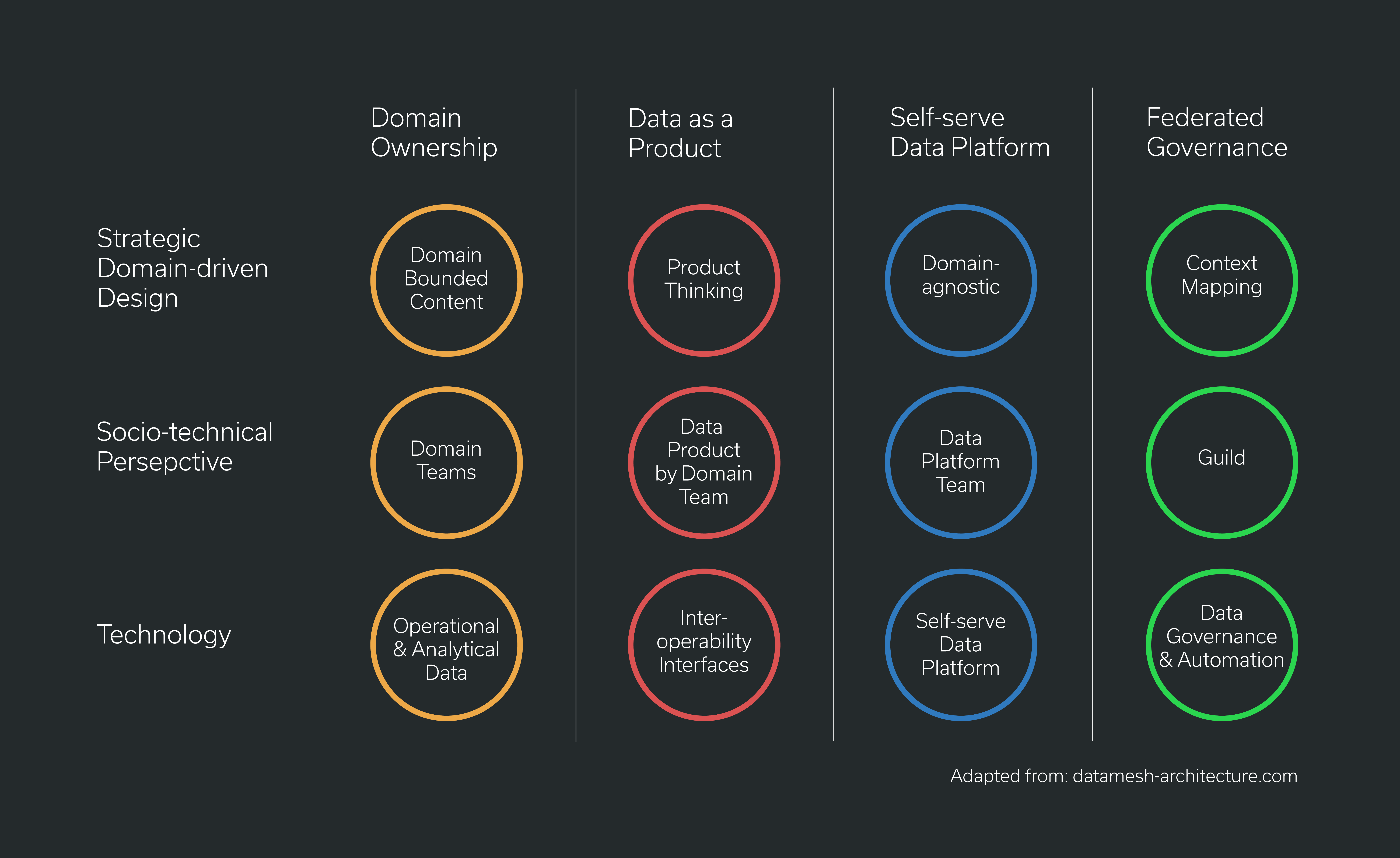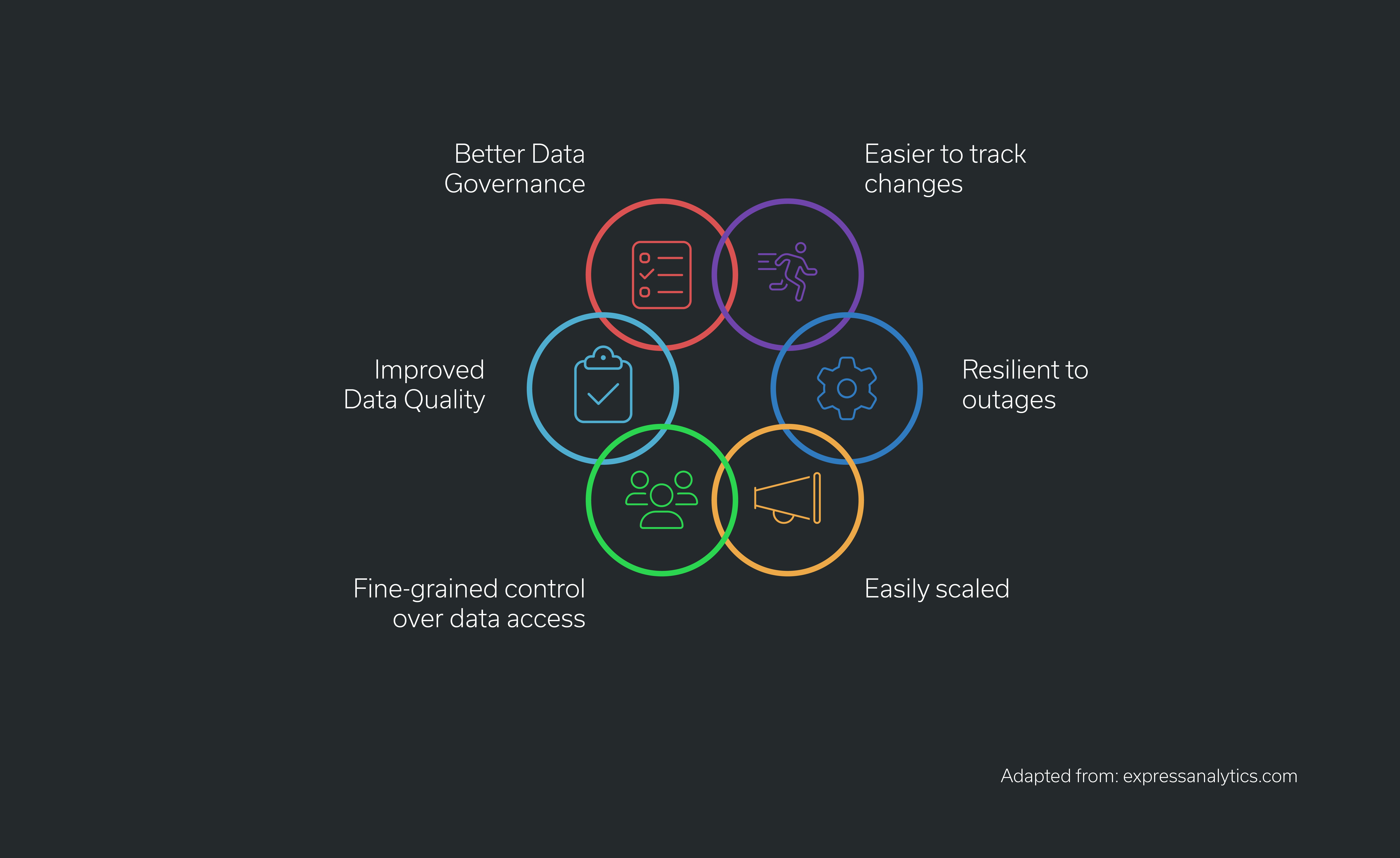What isData Mesh?
Decentralized approach to organize and manage data
Definition
The term Data Mesh was shaped by Zhamak Dehghani. In her well-known book “Data Mesh – Delivering Data-Driven Value at Scale”, she defines it as a decentralized sociotechnical approach to share, access, and manage analytical data in complex and large-scale environments—within or across organizations.
According to Gartner®, Data Mesh is a cultural and organizational shift for data management focusing on federation technology that emphasizes the authority of localized data management. Data Mesh is intended to enable easily accessible data by the business.
They also define it as “a data management approach (though not an established best practice) that supports a domain-led practice for defining, delivering, maintaining and governing data products. Data products must be easy to find and use by data consumers (developers, business users, APIs) and must fulfill the contract between the provider and the consumer.”
Data Mesh is the nudge that puts us on a new trajectory in how we approach data: how we imagine data, how we capture and share it, and how we create value from it, at scale and in the field of analytics and AI.
Zhamak Dehghani
Principles of Data Mesh
Data Mesh is built on four fundamental principles: Principle of Domain Ownership, Principle of Data as a Product, Principle of the Self-Serve Data Platform, and Principle of Federated Computational Governance.
Principle of Domain Ownership
Ownership of analytical data is decentralized to business domains closest to the data.
Principle of Data as a Product
Domain-oriented data is shared as a product directly with data users.
Principle of Self-Serve Data Platform
A self-service data platform streamlines the experience of data users to discover, access, and use data products and of data providers to build, deploy, and maintain data products.
Principle of Federated Computational Governance
Creating a data governance operating model based on federated decision-making and accountability structure.

Benefits of Data Mesh
According to PWC, already 60% of companies with 1,000 employees or more use or implement Data Mesh. There are various benefits:
- Quickly adapt to changes as the company scales and grows
- Enable data from disparate systems to be collected, integrated and analyzed all at once
- Eliminate the need to extract data from disparate systems in one central location
- Individual domains gain the ability to self-manage and self-serve data projects
- Business domains design their own use cases while remaining full control over their data
- Tackle data governance bottlenecks

What you will need for Data Mesh
Implementing the Data Mesh architecture requires a combination of technical and organizational changes. To get started with Data Mesh you should:
Treat data as a product
Gain a comprehensive view of your data landscape
Shift ownership of data to departments
Enable everyone to build and use data products
Create Data Product Marketplace
Drive cultural change towards a data-driven company
One Data is an AI-powered Data Product Builder that helps data experts to build and deploy data products. An interactive data map enables them to see the entire data landscape, access data assets, and identify connections between them, reducing the time to build data products. Leading data-driven organizations choose One Data to develop and deploy cutting-edge Data Mesh or Data Fabric architectures. Business users can access data products via a marketplace using their preferred analytics or data science tools. One Data empowers data teams to achieve their full potential and fostering data cultures within organizations.
Related content
BARC Study: Data Mesh
In the study “Data Mesh: Game Changer or Just Hot Air?” BARC provides answers and insights backed by significant stats.
eBook: Data Mesh
One Data enables you to implement Data Mesh on a technical level. This eBook contains everything you need to know to go live within the space of a few pages.
Collaboration Instead of Data Silos: Realizing Data Mesh
Realizing the Data Mesh approach and paving the way for innovation through data products at SCHOTT.